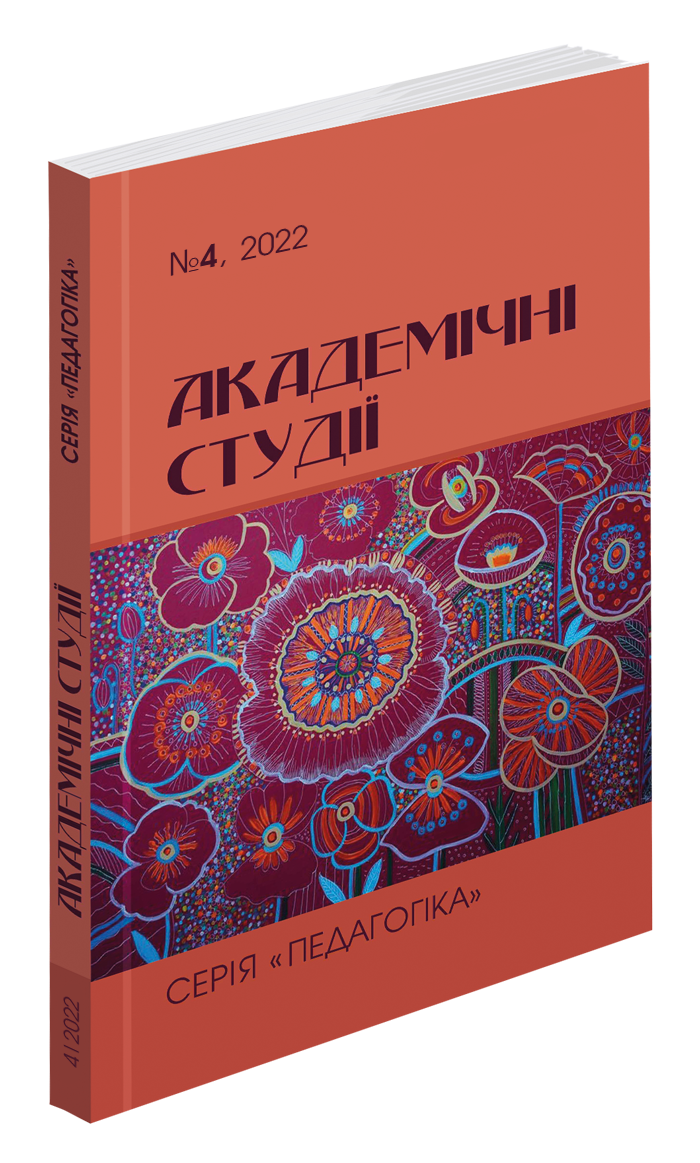Abstract
The article reveals such concepts as «culture», «language and culture» and the relationship between them. Factors affecting the language and culture of students are identified, attention is paid to the methods of language and culture formation in the conditions of a higher school. Some teaching methods are characterized by taking into account the nature of the participants cognitive activity. Emphasis is placed on methods of producing oral culture, types of language and sound exercises, and communication tasks. A method of improving one’s own language and culture of young people is proposed. In Ukraine, language learning is a national duty of every Ukrainian. At the same time, the state guarantees the free development and use of languages in ethnic communities. In a multi-ethnic environment, the formation of language culture is a primary task. Each language is a reflection of the national culture of the people and an important means of socialization of the individual. The modern information society makes new demands on education, one of which is to train people who can make key decisions and find ways to communicate in new environments. Mobility, independence, creativity, the ability to adapt to rapid changes – these personality traits become decisive and their formation requires the introduction of new approaches to the learning process. Pedagogy is aimed at creating optimal conditions for intellectual development and self-realization of the individual, since a person is the highest value of society. The wellbeing of people and the possibility of intellectual competition in the international arena depend on the level of education in the country. For language teachers, it is important that young people are interested in literature, seek to learn more about their native language, and form language culture. Today, all of Ukraine says that in these difficult times it is very important to preserve our language and traditions. Therefore, teachers are always looking for something new to make learning not only effective, but also interesting. So, the concept of the new Ukrainian school determines the importance of using the following teaching methods: «In the process of teaching, an independent choice will be made with the use of teaching methods, connecting what has been learned with real life, taking into account the student’s personality». To teach in a new way, linguists must have the freedom to choose teaching materials, improvise and experiment. Raising a self-sufficient person, capable of thinking and making his own choices, requires considerable effort from the teacher.
References
Берегова Г. Д. Формування культури мовлення студентів-аграрників в умовах нижньонаддніпрянських говірок : дис. … канд. пед. наук: 13.00.02 / Херсон. держ. ун-т. Херсон, 2002. 245 с.
Біляєв О. М. Лінгводидактика рідної мови : навч.-метод. посіб. Київ : Генеза, 2005. 180 с.
Концепція Нової Української школи. URL: https://imzo.gov.ua/ osvita/zagalno-serednya-osvita-2/novaukrajinska- shkola (дата звернення: 11.06.2021).
Котик Т. М. Методика навчання української мови в початковій школі : навч.-метод. посіб. Івано-Франківськ, 2015. 296 с.
Курлянд З. Н., Хмелюк Р. І., Семенова А. В. та ін. Педагогіка вищої школи : навч. посіб. / за ред. З. Н. Курлянд. Вид. 3-тє, перероб. і доп. Київ : Знання, 2007. 495 с.
Методика навчання української мови в початковій школі : навч.-метод. посіб. для студ. вищ. навч. закл. / за наук. ред. М. С. Вашуленка. Київ : Літера ЛТД, 2010. 364 с.
Наумчук М. Словник-довідник основних термінів і понять з методики української мови. Тернопіль : Астон, 2003. 132 с.
Огієнко І. (Митрополит Іларіон). Рідна мова / упоряд. авт. передмови та коментарів М. С. Тимошик. Київ : Наша культура і наука, 2010. 436 с.
Окуневич Т. Г. Культура мовлення майбутнього вчителя-словесника в умовах українсько-російської двомовності : дис. … канд. пед. наук: 13.00.02 / Херсон. держ. ун-т. Херсон, 2003. 225 с.
Стахів М. Український комунікативний етикет : навч.-метод. посіб. Київ : Знання, 2008. 245 с.
Сухомлинський В. О. Серце віддаю дітям : вибрані твори в 5 т. Київ, 1977. Т. 3. 670 с.
Філософський словник / за ред. В. І Шинкарука. Вид. 2-ге, перероб. і доп.). Київ, 1986. 796 с.
Хорошковська О. Н. Методика навчання української мови у початкових класах шкіл з російською мовою викладання. Київ : Промінь, 2006. 256 с.

